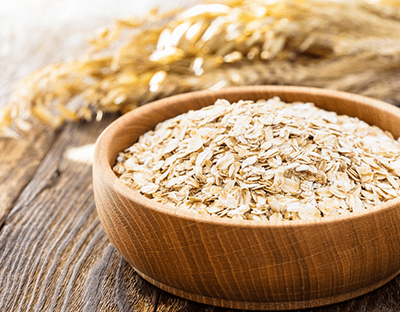 In 1516, Reinheitsgebot, also known as the German Beer Purity Law, was put into effect. To alleviate competition between producers of barley, wheat, and rye, it limited beer ingredients to only barley, water, and hops (yeast hadn’t been discovered yet!). Though some brewers choose to brew within these strict guidelines, many prefer to experiment and use more than just barley in their brews.
In 1516, Reinheitsgebot, also known as the German Beer Purity Law, was put into effect. To alleviate competition between producers of barley, wheat, and rye, it limited beer ingredients to only barley, water, and hops (yeast hadn’t been discovered yet!). Though some brewers choose to brew within these strict guidelines, many prefer to experiment and use more than just barley in their brews.
There are many styles of beer that require grains other than malted barley, including certain styles of Belgian Ale, English Ale, and yes, even German beers. The grains used in these beers are often referred to as adjunct grains:
- Wheat – Wheat is mandatory brewing adjunct if you want to brew your own Hefeweizen or American Wheat Beer. Adventures in Homebrewing carries Red Wheat Malt, White Wheat Malt, and Wheat Malt Extract to lend your homebrew wheat flavor and body. Use 50-75% wheat malt in your grain bill for Weizenbier, or 1-2% to help head retention in any beer style.
- Rye – Want to brew your own Rye Pale Ale or German Roggenbier? Briess Rye Malt contributes a unique, spicy and grainy flavor reminiscent of bourbon. You’ll want to use this brewing adjunct grain sparingly, as rye has a tendency to stick together in the mash kettle. You’ll rarely see more than 10-20% of malted rye in a grain bill (3.7° Lovibond). Another option is Flaked Rye, which gives the crisp, dry rye flavor, but with more body and more extractable sugar than malted rye.
- Oats
 – If you want to brew an Oatmeal Porter or Oatmeal Stout, you have to use oats! Regular, unmalted, whole-grain oats contribute flavor and head retention to your brew, but not much fermentable sugar. Flaked Oats are pre-gelatinized to make their starches accessible as fermentable sugar, but they’ll also do wonders for head retention and body. Oats are often included in some Belgian beers, such as the ever popular Witbier.
– If you want to brew an Oatmeal Porter or Oatmeal Stout, you have to use oats! Regular, unmalted, whole-grain oats contribute flavor and head retention to your brew, but not much fermentable sugar. Flaked Oats are pre-gelatinized to make their starches accessible as fermentable sugar, but they’ll also do wonders for head retention and body. Oats are often included in some Belgian beers, such as the ever popular Witbier.
- Corn – Corn, or maize, when used as a brewing adjunct must be cooked, then mashed with barley malt to extract fermentable sugars. Flaked Corn is pre-gelatinized, making starches accessible, and can be added directly to the mash. Corn adds essentially no color to beer, but contributes some sweet, corn flavor. It’s primarily used in American Light Lagers, certain Pre-Prohibition style beers, and traditional South American chicha.
- Rice – Rice, usually in the form of rice syrup, is often added to American Light Lagers in place of malted barley because it’s cheap and doesn’t contribute much flavor or color. Flaked Rice accomplishes the same task, resulting in a dry, crisp beer. Rice Hulls are often added to brews made with a lot of wheat or rye to avoid a stuck mash.
Certainly, there are other brewing adjunct grains that you could play around with and put in their beer, but this list comprises the majority of what you’ll find called for in home brewing recipes.
What is your favorite adjunct grain you like to use in your beers?
—–
Ed Kraus is a 3rd generation home brewer/winemaker and has been an owner of E. C. Kraus since 1999. He has been helping individuals make better wine and beer for over 25 years.

A few weeks ago I ordered 2 units of Brewferm Diabolo. I have since then been trying to figure out how much sugar and water I should use. The directions that came with the Brewferm are of no help. Could you help me with my problem?
Tnx, Nick Pucino
Can I use flaked rye in extract brewing?
Hello Nick,
The directions call for 500 grams of sugar at the beginning. It also calls for 90 grams at bottling time. In English units this come out to 17.37 ounces and 3.17 ounces respectively. Also be aware that this kit make a total of 9 liters. That’s 2.38 gallons.
Nick, you can use any flaked grains in an extract beer recipes, including the flaked rye.
Flaked Rye
http://www.eckraus.com/flaked-rye-1.html
I´m interested in starting with raw corn. What would be the cook procedure in order to use the corn to add to the mash.
Cheers!
Does anyone have idea of how Jeffrey needs to prepare the corn. I could only make a guess.
grind it to a fine meal, put it in plenty of water and simmer it for 15 minutes or so. Keep in mind that adding 190-212F corn to the mash will increase the temp.